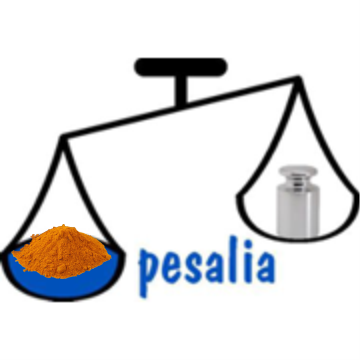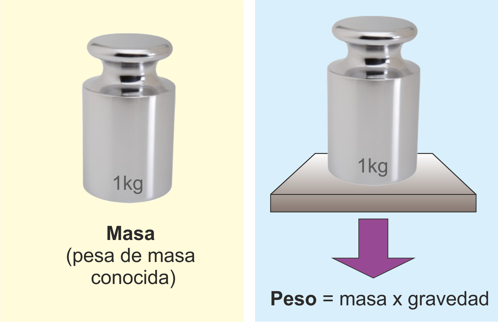It is common, at day-to-day trading, to measure the weight of a product in kg. However, kilogram (kg) is the mass measuring unit at the International System of Units (ISU).
So...What is mass? And weight? Which is the origin of this "confusion"?
Easily speaking, mass corresponds to the quantity of matter of a given object. Then, mass is an intrinsic property of this object, and its value is independent from external factors.

Weight, instead, corresponds to the resultant force of the action exerted by gravity of the Earth (in our case) on the mass of a body, and its measuring unit is Newton (N) at the ISU.
Really, what we are measuring when we "weight" in kg is mass, and not weight. And it is mass what matters, since the final objective of weighing is to know, or to measure, a given quantity of material.
Mass can be measured directly with an analogic balance (using mass comparison) comparing the weight of an object with that of weights of known mass (calibrated with an standard).
Using other weighing equipments, the effect due to the weight is converted to mass through equipment calibration using weights of known and verified mass. That calibration allows also to correct weight deviations caused by local variations of gravity (although, nowadays, some equipments already perform this correction automatically).
Thereby, weight of an object becomes mass in an easy way. And that's how we "weight" in kg.







